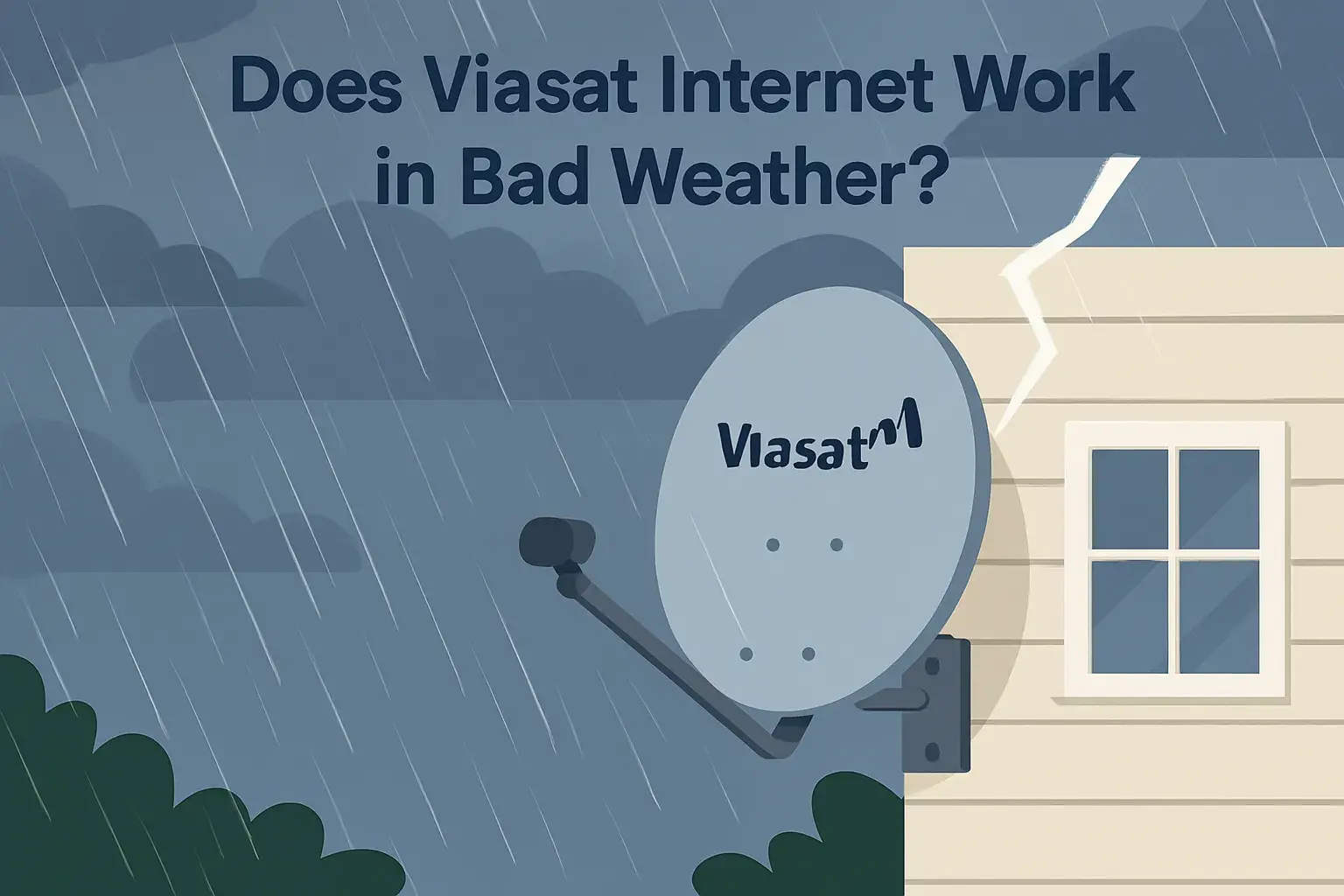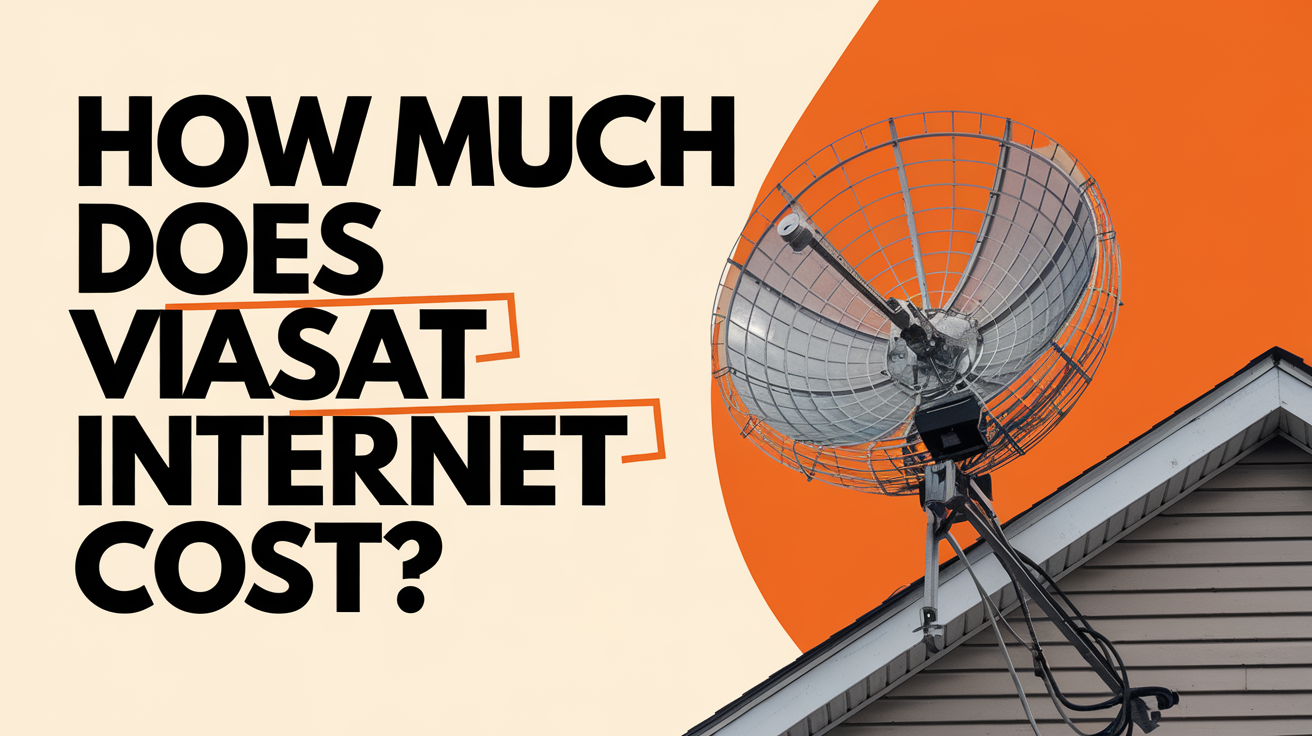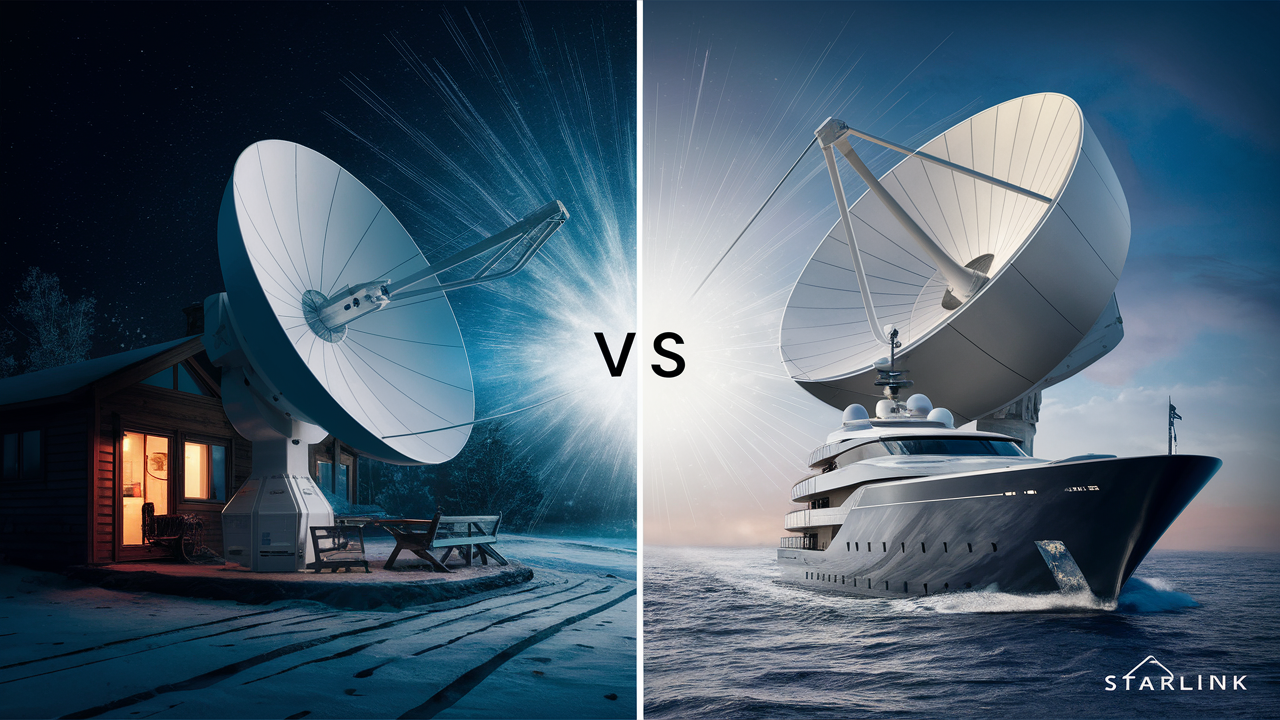-
Posted on: 15 Jul 2024

-
Viasat Internet is a satellite-based internet provider offering coverage in areas where fiber or cable connections are unavailable. But one of the biggest concerns with satellite internet is how it holds up in bad weather. Whether it's rain, snow, or thunderstorms, people want to know: will Viasat Internet still work reliably? This comprehensive guide explores the impact of weather on Viasat Internet, performance tips, real-world expectations, and how to prepare for stormy days.
Understanding Satellite Internet and Weather Sensitivity
Unlike wired internet (cable, DSL, fiber), Viasat uses a satellite in geostationary orbit about 22,000 miles above Earth to deliver broadband. The signal travels from your dish to the satellite and then to a ground station. Bad weather can affect this signal, particularly during storms or dense cloud cover.
Factors That Influence Satellite Signal
- Rain fade: Heavy rainfall can absorb or scatter satellite signals, weakening the connection.
- Snow accumulation: Wet, sticky snow can block the satellite dish or weigh it down.
- Dense cloud cover: Thick storm clouds can scatter the signal slightly, causing latency spikes.
- Wind: While wind doesn’t directly interfere with the signal, strong gusts can misalign your dish.
Does Viasat Work During Rain?
Viasat generally works during light to moderate rain. The signal may weaken slightly, but most users experience little to no difference during a passing shower. However, in cases of very heavy rain or thunderstorms, brief signal interruptions may occur due to “rain fade.”
How to Minimize Rain Fade Effects
- Ensure your dish is installed at the optimal angle and location by a certified technician.
- Use a weather-resistant modem/router setup provided by Viasat.
- Consider a dish cover or shield to reduce rain interference (consult Viasat before modifications).
How About Snow and Ice?
Snow can pose a greater risk than rain, especially if it accumulates on the satellite dish. A layer of snow can block the signal completely or degrade it significantly. Ice buildup is even more problematic as it can weigh down or damage the dish assembly.
Tips for Maintaining Performance During Snowstorms
- Gently brush off snow from the dish using a broom (never use sharp tools).
- Install a dish heater or thermal blanket (available through Viasat partners).
- Position your dish where snow buildup is less likely, like under an overhang.
Thunderstorms and Lightning Concerns
Thunderstorms affect internet speed due to intense rain and cloud density. Lightning doesn’t affect satellite signal directly but can be a threat to your hardware if your system isn’t grounded properly.
Safety Measures During Thunderstorms
- Use surge protectors on your modem/router to protect from power spikes.
- Temporarily unplug the system if lightning strikes are extremely close.
- Ensure proper grounding of your Viasat equipment (done during installation).
Does Viasat Go Down in Hurricanes or Tornadoes?
In cases of extreme weather like hurricanes, Viasat may go offline temporarily. High winds, flooding, and power outages can make the system inoperable even if the dish remains intact. Service restoration will depend on both local power and the condition of your hardware.
Cloudy Days and Overcast Weather
Light cloud cover typically has little to no impact on Viasat performance. Even on overcast days, the satellite signal usually remains strong enough for video streaming, browsing, and other online activities.
Viasat’s Built-In Technology for Weather Management
Viasat incorporates weather-resilient technologies in its satellite infrastructure:
- Redundant ground stations: If one location is storm-affected, data is rerouted through others.
- Signal error correction: Helps maintain data integrity during momentary disruption.
- Modem auto-adjustment: Your modem can automatically adjust signal reception parameters in poor weather.
Comparing Viasat to Other Types of Internet During Bad Weather
Connection Type Weather Impact Typical Issue Viasat (Satellite) Moderate to High Rain fade, snow accumulation Fiber Low Only power outages affect service DSL Low to Moderate Lightning may damage copper lines Fixed Wireless High Obstruction, rain fade, signal loss How to Tell If Bad Weather Is Affecting Your Viasat Connection
- Notice slower speeds or buffering during heavy rain.
- Check your modem lights—flashing or red indicators suggest signal loss.
- Use the Viasat app to diagnose outages or technician support.
What to Do If Viasat Stops Working in Bad Weather
- Wait 15-30 minutes after the storm passes to see if it auto-recovers.
- Reboot your modem and router.
- Check for damage or snow covering your dish.
- Contact Viasat support if the issue persists.
Customer Experiences: What Do Real Users Say?
Many Viasat customers report stable internet during mild rain and cloud cover, with only slight dips in performance. However, some users in snowy or storm-prone areas report occasional service interruptions lasting from a few minutes to an hour.
Does Viasat Offer Service Guarantees During Weather Events?
Viasat does not guarantee 100% uptime during adverse weather, as it's a known limitation of satellite technology. However, support is available 24/7, and the system is designed to auto-recover once conditions normalize.
Conclusion
So, does Viasat Internet work in bad weather? Yes—most of the time. It performs reliably during light to moderate rain and overcast days. However, heavy storms, snow, and extreme weather can cause brief slowdowns or outages. With proper installation, maintenance, and preparedness, you can minimize the impact and enjoy strong internet performance year-round.
FAQs: Viasat Internet and Bad Weather
Does Viasat Internet go out during rain?
Light to moderate rain rarely causes issues, but heavy downpours may temporarily weaken or disrupt the signal.
Can snow affect my Viasat Internet service?
Yes, snow buildup on the satellite dish can block the signal. It's recommended to gently remove it and consider a dish heater.
How do I know if the weather is causing my slow internet?
If your speeds drop during a storm and return after, it's likely due to weather. Use the Viasat app for diagnostics.
Is wind a problem for satellite internet?
Wind itself doesn't affect the signal, but strong gusts can misalign the dish, causing connectivity issues.
Can I improve Viasat’s performance during bad weather?
Yes. Proper installation, dish covers, snow guards, and surge protectors can improve performance during inclement weather.





